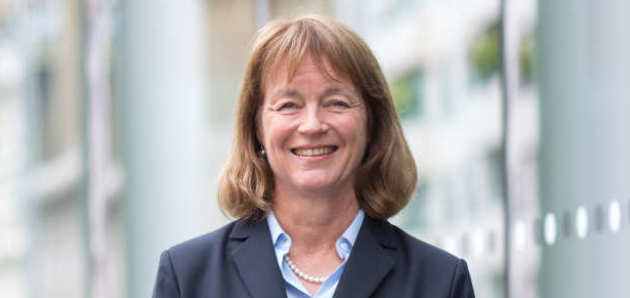Towards a better world
From the President / Professor Alice Gast

Last November, when we were planning the content for this issue, we wanted to cover the critically important and ground-breaking work our colleagues were doing on ‘Disease X’ – that next great unknown new virus. Little did we know that before the issue went to print Disease X would be upon us, and we would be in a most extraordinary world of lockdowns, social distancing, prevention and protection. There has been terrible loss, and our hearts go out to members of our community, their family members and friends who have experienced death and suffering.
Amid all of this sadness, there have been triumphs. People rallied to support one another in amazing ways. We opened our doors to NHS workers, and our community volunteered to serve in the wards, made face shields and hand sanitiser and designed new ventilators. Our academics doubled down to produce insightful models, create new diagnostics and develop a vaccine. These are the moments when the determination and spirit of our Imperial community really stand out. Our talent, our capacity to innovate and improvise, and our collaborative approach to addressing complex problems come together to produce solutions with global benefits.
On 17 January, a report from Professor Neil Ferguson’s group in the Abdul Latif Jameel Institute for Disease and Emergency Analytics (J-IDEA) and the MRC Centre for Global Infectious Disease Analysis took the news of the detection of three cases of COVID-19 outside China and calculated, based on flight and population data, that there were far more cases in China than originally thought, that human-to-human transmission was probable and that this was a virus to contend with locally and globally. They recommended “heightened surveillance, prompt information sharing and enhanced preparedness”. The swift spread to Europe and beyond brought us to unprecedented worldwide efforts to reduce the impact of the virus on people.
Meanwhile, Professor Robin Shattock was working on a novel vaccine for Disease X. He presented his work on a new self-amplifying RNA vaccine at Davos in January 2019, and, by January 2020, was in possession of the sequence of COVID-19. With remarkable speed, he and his team were able to generate a candidate vaccine in the laboratory 14 days after receiving the sequence. You can read about this work and other Imperial breakthrough research on page 24.
At my sixth President’s Address at the beginning of March, I talked about improvisation and what we could learn from jazz masters. I said that “… three elements – foundations, collaborations and risk-taking – are central to great jazz performances, and, indeed, central to many human acts at the epitome of excellence. I believe that they will make all the difference for us personally, collectively and institutionally.”
Jazz improvisation, like any lasting improvisation, does not arise from making things up as you go along. It is a highly disciplined process of building upon what came before, with the goal of finding a new approach that will lead to an improved solution. As we look at the uncertainty before us, our ability to improvise, to be creative
by thinking outside the box, is all the more pertinent. Today, dealing with a global pandemic, we ‘improvise’ based upon our values, our intellect, our experience, our adherence to robust scientific method and our ability to imagine a better future.
Hundreds of my colleagues are improvising as you read this. You will see how they are pursuing solutions to global challenges – from the coronavirus and dark data to net zero emissions in the UK and helping people with dementia. They are also creating exciting ways to transform teaching at Imperial through the innovative use of technology that
will provide a safe and high-quality education in the COVID-19 world. Our cover story on the Imperial magnetometer and its great discoveries, from the Sun to Saturn, with a much-anticipated visit to Jupiter, is a chronicle of great collaboration, intellect and persistence.
These stories are a sample of what we see at Imperial every day. I hope that you find them inspiring and uplifting. We are moving towards a better world, even during these difficult days.
All of us greatly look forward to a time when we can meet, in person, once again.
Professor Alice Gast is President of Imperial College London and is an internationally renowned academic leader and researcher.